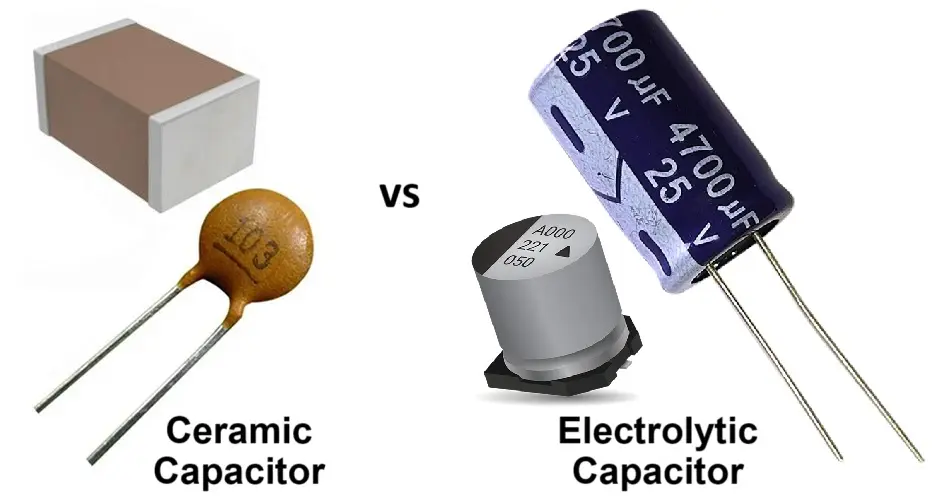In the fast-evolving world of manufacturing, how do ICT test fixtures fit into the smart factory landscape of Industry 4.0? Simply put, ICT (In-Circuit Testing) fixtures are becoming a cornerstone of smart factories by enabling data-driven testing, real-time monitoring, and seamless integration with advanced systems like Manufacturing Execution Systems (MES). This blog dives deep into how ICT in Industry 4.0 is transforming electronics testing, ensuring higher efficiency, predictive maintenance, and smarter decision-making on the factory floor.
At ALLPCB, we understand the importance of integrating cutting-edge testing solutions into modern manufacturing. In this post, we'll explore the role of ICT test fixtures in smart factories, their connection to Industry 4.0 principles, and how they support data-driven approaches to testing and maintenance. Let’s break it down step by step.
What Are ICT Test Fixtures and Why Do They Matter?
ICT test fixtures are specialized tools used in electronics manufacturing to test printed circuit boards (PCBs) for functionality and quality. These fixtures hold the PCB in place and connect it to a testing system that checks for issues like short circuits, open connections, or incorrect component values. By using precise probes and electrical signals, ICT fixtures can detect faults early in the production process, saving time and reducing costs.
In traditional setups, ICT testing was a standalone process, often isolated from other factory operations. However, with the rise of Industry 4.0, these fixtures are no longer just testing tools—they are integral parts of a connected, intelligent manufacturing ecosystem. Industry 4.0 emphasizes automation, data exchange, and smart technologies, and ICT fixtures play a critical role by providing real-time data that drives better decision-making.
Industry 4.0: The Smart Factory Revolution
Industry 4.0 is the fourth industrial revolution, defined by the integration of cyber-physical systems, the Internet of Things (IoT), big data, and artificial intelligence (AI) into manufacturing. Smart factories built on these principles are highly automated, interconnected, and capable of self-optimization. They rely on real-time data to monitor processes, predict issues, and improve efficiency.
In this context, ICT in Industry 4.0 is about more than just testing components. It’s about embedding testing into the broader network of factory operations. By connecting ICT fixtures to smart systems, manufacturers can collect data on every test, analyze trends, and make adjustments on the fly. This shift transforms testing from a reactive process into a proactive strategy that supports the goals of a smart factory.
The Role of ICT Test Fixtures in Smart Factories
ICT test fixtures are uniquely positioned to contribute to Industry 4.0 by enabling several key features of smart factories. Let’s explore how they integrate into this modern landscape.
1. Data-Driven Testing for Precision and Quality
Data-driven testing is at the heart of smart manufacturing. ICT fixtures equipped with sensors and connected to digital platforms can capture detailed data during every test cycle. For example, they can measure impedance values (often in the range of 1 to 100 ohms for typical PCB traces) and signal speeds (sometimes exceeding 1 GHz in high-speed designs) to identify deviations from design specifications.
This data isn’t just stored—it’s analyzed in real time to spot patterns or recurring issues. If a specific component fails repeatedly, the system can flag it for further investigation, reducing defect rates. By leveraging data-driven testing, manufacturers ensure higher quality products while minimizing waste.
2. Real-Time Monitoring for Instant Feedback
Real-time monitoring is a game-changer in smart factories. ICT fixtures integrated with IoT technology can send test results instantly to a central dashboard or cloud platform. This means factory managers can see if a batch of PCBs is failing a particular test within seconds of the issue occurring, rather than waiting for manual reports.
For instance, if a test fixture detects a short circuit on 5% of tested boards within an hour, the system can alert operators to check the soldering process immediately. This level of responsiveness cuts downtime and prevents defective products from moving further down the production line.
3. Predictive Maintenance to Avoid Downtime
Predictive maintenance is another pillar of Industry 4.0, and ICT fixtures contribute significantly to this area. By continuously monitoring their own performance metrics—such as probe contact resistance or mechanical wear—these fixtures can predict when maintenance is needed before a breakdown occurs.
For example, if a fixture’s probe contact resistance increases beyond a threshold (say, from 10 milliohms to 50 milliohms over time), the system can schedule maintenance during a planned downtime window. Studies suggest that predictive maintenance can reduce equipment downtime by up to 30%, a critical advantage in high-volume manufacturing.
4. Seamless Integration with MES for Holistic Control
Integrating ICT with MES (Manufacturing Execution Systems) is where the true power of Industry 4.0 comes to life. An MES is a software system that manages and monitors production activities on the factory floor. When ICT fixtures are connected to an MES, test data flows directly into the system, providing a complete picture of production quality and efficiency.
For instance, if an ICT fixture identifies a recurring fault in a batch of PCBs, the MES can trace the issue back to a specific supplier or machine, triggering corrective actions. This integration ensures that testing isn’t an isolated step but part of a unified workflow, optimizing every stage of production.
Benefits of Integrating ICT Test Fixtures into Industry 4.0
The integration of ICT test fixtures with smart factory technologies offers several tangible benefits for manufacturers. Here are some of the most impactful advantages:
- Improved Product Quality: Data-driven testing and real-time monitoring catch defects early, ensuring only high-quality products reach the market.
- Reduced Costs: Predictive maintenance and automated fault detection minimize repair costs and production losses due to defective units.
- Increased Efficiency: Seamless communication between ICT fixtures and MES systems streamlines workflows, cutting down on manual interventions.
- Enhanced Traceability: Every test result is logged and linked to specific batches or components, making it easier to trace issues back to their source.
- Scalability: Smart ICT fixtures can adapt to changing production needs, supporting manufacturers as they scale operations.
Challenges in Adopting ICT in Industry 4.0
While the benefits are clear, integrating ICT test fixtures into a smart factory isn’t without challenges. Manufacturers must address several hurdles to fully realize the potential of this technology.
1. High Initial Investment
Upgrading to smart ICT fixtures and connecting them to IoT or MES platforms requires significant upfront costs. Sensors, software, and network infrastructure all add to the expense, which can be a barrier for smaller manufacturers.
2. Data Security Concerns
With real-time data being transmitted across networks, there’s a risk of cyberattacks or data breaches. Manufacturers need robust cybersecurity measures to protect sensitive test results and production data.
3. Technical Expertise
Operating and maintaining smart ICT systems demands skilled personnel who understand both testing hardware and digital integration. Training staff or hiring experts can add to operational costs.
4. Compatibility Issues
Older ICT fixtures or legacy systems may not be compatible with modern Industry 4.0 technologies. Upgrading or replacing outdated equipment can be time-consuming and expensive.
How ALLPCB Supports ICT Integration in Smart Factories
At ALLPCB, we’re committed to helping manufacturers navigate the transition to Industry 4.0. Our expertise in PCB assembly and testing solutions ensures that you have access to the tools and support needed to integrate ICT test fixtures into your smart factory setup.
We provide tailored solutions that align with data-driven testing and real-time monitoring needs. Our team works closely with clients to design testing workflows that connect seamlessly with MES platforms, enabling predictive maintenance and end-to-end traceability. Whether you’re upgrading existing fixtures or building a new smart factory, we’re here to guide you every step of the way.
Future Trends: What’s Next for ICT in Industry 4.0?
The future of ICT test fixtures in smart factories looks promising, with several trends shaping the landscape:
- AI-Powered Testing: Artificial intelligence will enhance ICT systems by predicting test outcomes and optimizing testing parameters based on historical data.
- Digital Twins: Virtual replicas of ICT fixtures and production lines will allow manufacturers to simulate testing scenarios and identify potential issues before they occur.
- 5G Connectivity: Faster, more reliable networks will enable real-time data transmission from ICT fixtures to cloud systems, supporting even quicker decision-making.
- Sustainability Focus: Smart ICT systems will help reduce energy consumption and waste by optimizing testing processes and minimizing defective products.
Conclusion
ICT test fixtures are no longer just tools for quality control—they’re vital components of the Industry 4.0 smart factory. By embracing data-driven testing, real-time monitoring, predictive maintenance, and integrating ICT with MES, manufacturers can achieve unprecedented levels of efficiency and quality. While challenges like cost and cybersecurity remain, the benefits of adopting these technologies far outweigh the drawbacks.
At ALLPCB, we’re dedicated to empowering manufacturers with the solutions they need to thrive in the era of smart manufacturing. By integrating ICT test fixtures into your operations, you’re not just keeping up with Industry 4.0—you’re staying ahead of the curve. Let’s build the future of manufacturing together.
 ALLPCB
ALLPCB







